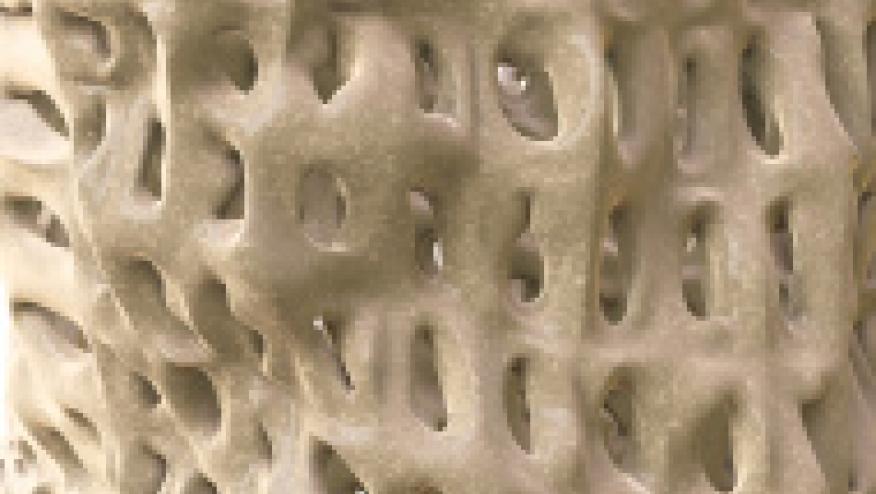Antacids can Diminish Bone Density Save

Proton pump inhibitors (PPIs), a specific class of antacid drugs, are among the most widely used medications of all. They are frequently prescribed to many groups of patients, including those with rheumatism. PPIs are used to prevent the stomach problems that can arise from taking certain anti-inflammatory drugs. But this practice could have negative effects on bone health: As a study by Charité – Universitätsmedizin Berlin shows, taking PPIs, especially simultaneously with cortisone, is associated with an elevated risk of osteoporosis. The study has now been published in the journal Mayo Clinic Proceedings.
Doctors in Germany prescribed some 3.8 billion daily doses of proton pump inhibitors in 2022, according to the most recent official German drug prescription report. PPIs such as pantoprazole and omeprazole inhibit production of stomach acid. They are primarily intended as treatment for stomach ulcers or bleeding, but they are also used preventively. Many patients with rheumatoid arthritis, also known as rheumatism, are prescribed PPIs in certain circumstances when they are being treated with glucocorticoids (“cortisone”) to prevent the stomach lining from becoming inflamed. Some take PPIs even without consulting their doctor to treat conditions such as heartburn or other gastric issues. These medications are available over the counter up to a certain dosage.
However, studies of various diseases have shown that taking PPIs can contribute to the development of osteoporosis (loss of bone mineral density). In addition, the cortisone that is often used simultaneously in rheumatology can also weaken the bones. “So we wondered whether PPIs would further increase the osteoporosis risk in our rheumatism patients as well,” explains Dr. Andriko Palmowski, the first author of the study and a physician and research associate at Charité.
Analysis of bone mineral density of 1,500 patients
To find out, he and Prof. Frank Buttgereit teamed up with other colleagues from Charité, the United States, and Denmark to study the bone health of about 1,500 patients with inflammatory rheumatic conditions. Around half of them took proton pump inhibitors daily. The researchers analyzed bone mineral density and bone microarchitecture. Diminished bone density and changes in microarchitecture are indicative of osteoporosis.
The team found that patients who took PPIs did in fact have significantly lower bone density than those who did not. The correlation remained even after controlling for factors such as age and nicotine consumption. The effect was especially noticeable in patients who took PPIs together with cortisone preparations with a daily dose of at least 7.5 mg. By contrast, there were no relevant adverse effects on bone microarchitecture. “Our findings suggest that PPIs lead to a loss of bone mineral density in patients with rheumatoid arthritis,” Palmowski says. This works out to a roughly 25 percent higher risk of a vertebral fracture.
Reasons to prescribe antacids should be considered carefully
The study’s authors believe their physician colleagues have a special duty in light of their findings: “Doctors should consider their reasons for prescribing PPIs carefully and discuss the benefits and potential risks with patients – especially if cortisone is prescribed at the same time,” they conclude. Legitimate reasons to prescribe PPIs include risk factors that could contribute to the development of gastric ulcers. Those factors include things like taking cortisone simultaneously with non-steroidal anti-inflammatory drugs (NSAIDs) used to treat rheumatism, like ibuprofen, diclofenac, and even aspirin. By contrast, those who take cortisone alone with no other risk factors do not tend to require antacids – that is according to the official German medical guidelines on prescription medications for patients with multiple health conditions (Leitlinie Arzneimitteltherapie bei Multimorbidität).
“If taking both at the same time is unavoidable, supplements containing vitamin D and calcium can help to preserve bone health,” Palmowski explains. If longer-term treatment with cortisone is planned, it may be necessary to measure bone density regularly and even to administer special osteoporosis drugs as well. Patients and doctors should consult together to decide on which measures make the most sense in the specific case.









If you are a health practitioner, you may Login/Register to comment.
Due to the nature of these comment forums, only health practitioners are allowed to comment at this time.